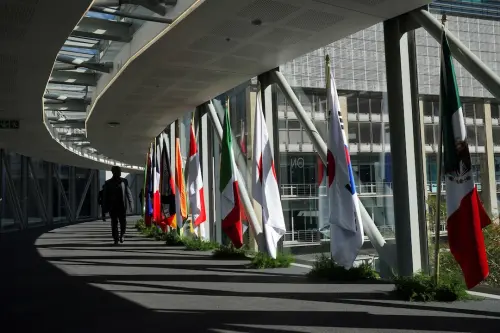South Africa endeavored to salvage international discussions on addressing global poverty amid notable absences at a Group of 20 nations meeting in Cape Town amidst cuts in foreign aid. The two-day conference follows announcements by the Trump administration to reduce USAID funding and Britain to slash its aid budget by 40% in favor of defense spending.
Historically, disagreements over trade, the conflict in Ukraine, and strategies for mitigating climate change have hindered the G20's effectiveness in addressing global issues. The recent non-attendance of key figures like U.S. Treasury Secretary Scott Bessent, as well as finance ministers from Japan, India, and Canada, threatens to weaken the group's credibility.
South African President Cyril Ramaphosa stressed the imperative of collaborative efforts within the G20 to protect the rights of the vulnerable amid powerful nations' ambitions. However, the notable absences may hinder the formulation of a substantive communique at the meeting's conclusion.
The gathering’s focus on climate finance, financial system reform, and inequality was further complicated by the absence of major stakeholders. The UK's decision to divert aid funds towards defense spending was defended by Finance Minister Rachel Reeves, citing global security challenges.
The absence of the U.S. delegation from recent G20 talks has cast uncertainty on the group's direction, particularly concerning climate change initiatives. The potential impact of U.S. President Donald Trump's climate change skepticism was highlighted by Energy Minister Kgosientsho Ramokgopa, underscoring uncertainties in global green energy transitions.
Analysts opined on the G20's future without significant U.S. involvement, with some questioning its relevance and others seeing an opportunity for progress without U.S. participation. Amidst these challenges, there are prospects for South Africa to demonstrate leadership within the G20 forum.
